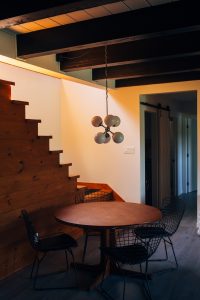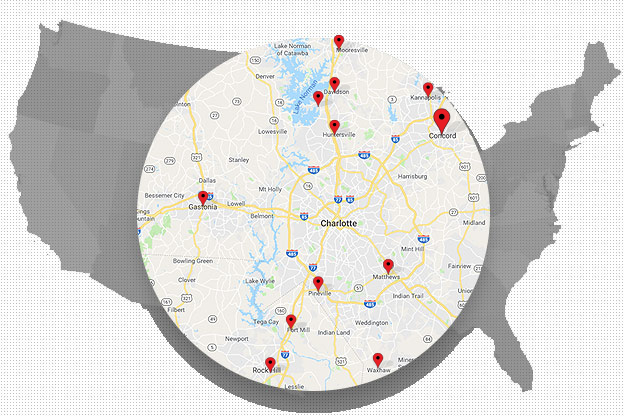9 Signs You Should Waterproof Your Basement

There are few things more frustrating to deal with than a flooded basement. The water doesn’t just make it hard to use the basement; it can damage items and equipment that’s down there.
More than a few precious items have been ruined when someone’s basement storage area flooded. If you want to avoid a similar fate, you need to waterproof your basement right away.
In addition to destroying the contents of a basement, flooding can cause damage to your walls and even your home’s foundation; basement waterproofing protects you from more serious problems down the line.
If your basement has never flooded, you might think you don’t need waterproofing, but just because you aren’t flooding doesn’t mean your basement isn’t taking on water.
Keep reading to learn nine signs that you need to waterproof your basement.
1. Your Basement Floods or Has Puddles
This is the most obvious sign you need to waterproof your basement: it floods. As mentioned above, flooding is a common problem that can wreak havoc on anything you have stored in your basement.
However, large floods aren’t the only thing you need to watch out for. Sometimes, only a little bit of water makes its way in, resulting in puddles. Any excess moisture is a problem, so treat these just like you would a flood.
A humid basement is also a bad sign–there’s too much moisture in the air.
In other words, a wet basement is always a problem, even if it’s not a flood or other obvious issue.
2. Visible Mold
One of the clearest indications that you have a problem in your basement is the presence of mold. Basement mold is very common in homes, but that doesn’t make it benign–it can cause all kinds of problems.
Mold can cause respiratory problems, such as coughing fits and difficulty breathing. In more serious cases, mold can cause fungal infections that can lead to serious illness.
If you find mold in your basement, clean it up right away and get started on waterproofing.
3. Water Stains
Water stains are a clear visual marker that water is getting into your basement, even if you don’t see the water yourself. If you see a water stain on your basement floor, don’t ignore it.
Water stains on the floor indicate that water is seeping up through your foundation–and if it’s happened once, it’s going to happen again.
Checking for stains is especially important if you’ve just moved into a new house. Don’t assume that they’re from a spill that the previous owners had or something of that nature; instead, prepare for the worst.
4. Musty Odors
Earlier, we mentioned visible mold as a clear sign that you have water issues in your basement. The tricky thing about mold, though, is that sometimes it’s there even when you can’t see it.
Mold and mildew can form inside walls or in other hard-to-see areas, and it will cause the same health problems regardless of its location.
The easiest way to identify mold you can’t see is by smell. Mold and mildew give off an unpleasant musty scent. Waterproofing a room can help prevent that odor, as well as the other problems that come with mold.
5. Bowed Walls
Your basement’s integrity has a lot to do with the soil that surrounds it. Soil absorbs moisture, so it tends to swell after rainfall, then contract. That puts pressure on your basement walls.
The expanding soil can push your basement walls inward, creating bowed walls that are bad news for your home’s structural integrity.
Bowed walls can be difficult to notice. The easiest way to identify them is to check the alignment of your basement wall, especially after heavy rain.
6. Wet or Chalky Walls
Have you ever walked down to your basement and seen the walls glistening? Moist walls are a sure sign that excess moisture is getting into your basement. Remember: any water in your basement is too much water!
While moist walls are clearly the result of water, there’s another, less obvious sign that your walls have been exposed to water. If your walls are covered in a chalky residue, it means they’ve been wet recently.
When water evaporates off of a moist concrete wall, it leaves behind salt and other minerals on the concrete’s surface, resulting in those white streaks. If you see them, it’s time to waterproof your basement!
7. Cracked Walls or Floors
Cracked walls are often the result of bowed walls going unchecked for too long. Eventually, the pressure of expanding and contracting soil becomes too much for a wall and cracks begin to form.
Walls aren’t the only part of your basement that is vulnerable to water pressure. Your floor can also wind up with cracks as a result of pressure from the soil.
8. Warped Doors
You may notice that doors in your basement stick frequently. If that’s the case, it’s another sign that you have too much moisture. Wooden doors absorb that moisture and swell up, making them harder to open.
In extreme cases, the door or its jamb can warp as a result of the moisture, causing problems even after the swelling has stopped.
9. Insect Issues
Insect infestations are very common–so common that you might not think your bug problem has anything to do with basement waterproofing. Every house gets a few bugs now and then, right?
While that is true, having a large number of insects in your basement points to a larger problem. Many kinds of insects prefer to live in dark, damp areas; if you’ve got bugs moving in, it may mean your basement is damp.
Cockroaches, termites, and more are attracted to your wet basement. These pests aren’t just annoying–they can cause health and safety issues if you let them run wild.
Waterproof Your Basement Today
Deciding to waterproof your basement is a key step in making your home a safer, healthier place. It will help you avoid insect infestations and potentially dangerous mold, as well as protecting your home’s structure from damage.
With so many benefits to waterproofing a home, why wait? If you’ve noticed any of these signs, contact us right away to start your basement waterproofing process!
Learn more about Sedona Waterproofing Solutions.
Recent Posts
- Structural Repair Solutions for Crawl Spaces, Basements, and Foundations
- Essential Crawl Space Repair Tips Every Homeowner Should Know
- The Importance of Radon Mitigation: Ensuring a Safe Living Environment for Homeowners
- How Crawl Space Encapsulation Can Protect Your Home from Water Damage
- A Comprehensive Guide for Homeowners: All You Need to Know About Crawl Space Encapsulation
Categories
- Basement Mold
- Basement Waterproof Foundation
- Basement Waterproofing
- Crawl Space Dehumidifier
- Crawl Space Encapsulation Cost
- Crawl Space Repair
- Crawl Space Waterproofing
- Encapsulation
- Foundation Repair
- Foundation Waterproofing
- French Drains
- Leaky Basement
- Mold Remediation
- Mold Removal
- Radon
- Slab Jacking
- Sump Pump
- Uncategorized
- Vapor Barrier
- Water Leak
- Waterproofing
- White Mold
Archives
- March 2024
- January 2024
- June 2023
- May 2023
- April 2023
- March 2023
- February 2023
- January 2023
- December 2022
- November 2022
- October 2022
- September 2022
- August 2022
- July 2022
- June 2022
- May 2022
- March 2022
- February 2022
- January 2022
- December 2021
- November 2021
- October 2021
- September 2021
- August 2021
- July 2021
- June 2021
- May 2021
- April 2021
- March 2021
- February 2021
- January 2021
- December 2020
- November 2020
- October 2020
- September 2020
- August 2020
- July 2020
- June 2020
- May 2020
- April 2020
- March 2020
- February 2020
- January 2020
- December 2019
- November 2019
- October 2019
- September 2019
- August 2019
- July 2019
- June 2019
- May 2019

